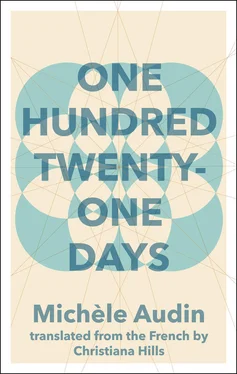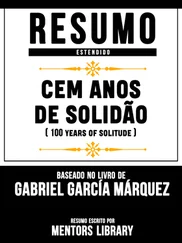The weather is so misty and sad.
January 5, 1917
Lieutenant Mortsauf has finished writing his dissertation. Cousin Paul will come get it tomorrow. In the meantime, I wrote out the dedication in beautiful lettering, for which he thoughtfully put:
“To the Polytechnicians Who Died on the
Field of Honor in a Just War”
with all those pretty capital letters.
He told me he was very satisfied with what he had done, and I’m sure it’s true, given how happy he seemed.
January 8, 1917
So much work. I couldn’t even stop to eat at midday.
No time to write again this evening.
January 9, 1917
He’s still working in his yellow notebooks. Paul told him he’ll probably win a prize for his dissertation. He also told me Paul was his Saint Christopher. I didn’t really understand what he meant by that.
When I congratulated him for the glorious prize he was going to receive, he answered:
If you can meet with Triumph and Disaster
And treat those two impostors just the same;
(…) You’ll be a Man, my son!
Thursday, February 1st
Today I begin a new notebook, the third for this diary I’ve been keeping in secret since Papa’s death. I was so young then!
I haven’t had very much time to write. I’ve often stayed late in the evening to talk to the men, who also need moral support. I’ve talked to Christian the most. We told each other what we like — I told him I like flowers. He told me he likes dogs. I really prefer cats, and I told him so. He told me that his dream, before the war, was to have a house with three dogs and six children, six boys. I told him I’d really like to have a little girl.
He’s going on a few days’ leave to defend his dissertation. I would’ve liked to go but I didn’t dare say so; after all, it’s not the place for a young lady, and I couldn’t imagine asking permission to leave the hospital for that.
So much snow again this year.
Thursday, March 1st, 1917
At least we haven’t had a February 29th this year. A year already, I remember the numbers: 29 and 479, which are prime numbers, Robert had shouted to everyone in the room, as if to announce some good news. “But why 479?” one of the patients had asked, while the others, with their bandaged heads, tried to escape the racket. “Because,” Robert replied, “if there is a February 29th, it’s because 1916 is divisible by 4, so divide it, divide it!” he had shouted.
Today, while I was changing his dressings, my patient took out a photo of himself from under his blanket. “That’s how I was before. No one will want me now,” he said — him, too. I told him as gently as I could that he must not say that.
I prayed for God to give me the strength to understand my feelings more clearly.
March 2
I looked at Jesus on the cross above my bed. He is wounded, too. I took His cross in my hands. I looked at His unfortunate face and He drank my tears.
March 3, 1917
I told Mama that Christian asked if I would agree to marry him.
I don’t dare think back on the mean things Thérèse uttered. And yet, I will. She said he wants to marry me because we’re rich and we have relatives in high places, and besides, I’m not even pretty. And she also said I agreed because I want to show everyone I’m capable of sacrifice, so that, along with my angelic airs, I would appear patriotic. Mama was angry and made Thérèse be quiet while saying I have beautiful blue eyes and “la beauté du diable” (the beauty of youth), and as for Thérèse, who thinks she’s so pretty, we’ll see how she looks at age thirty after having a few children, if someone still wants her in spite of her meanness.
Mama trusts my opinion.
On my table, a moonbeam lights up the white statue.
Our Lady of Lourdes, please help me.
March 5, 1917
I spoke to him. He asked the hospital for leave so that he can come see Mama and make his request. His father is much too far away for this to be done by the rules.
I will be Madame Christian Mortsauf.
April 2, 1917
We have set the date, June 23, a Saturday. It will be at Saint-Philippe-du-Roule, our parish, and Father de La Martinière will marry us. Then we will leave for our “honeymoon” at our house in Normandy.
Today, the cherry trees there must be in blossom.
His parents won’t be able to come. Not only is it too far, but, with the Krauts’ submarines ready to torpedo any innocent ships that pass, it would be too dangerous. Jean-Baptiste, his younger brother, will get leave to come. He and Cousin Paul will be Christian’s groomsmen. Major de Brisson and Thérèse will be my bridesmaids. Grandfather will walk me down the aisle.
You will be there in the church, Mary, full of grace, and you will support me with your love.
I would have loved a simple ceremony, but Father de La Martinière and Major de Brisson insisted, because of the symbol it will be: Christian will represent all of his comrades lost in combat and will wear the full uniform of the École Polytechnique, with the medals for the Croix de Guerre and the Légion d’Honneur. He was fitted for a mask in black taffeta, which hides the scars and reproduces the shape of his nose. That way he can go without the bandages and wear the cocked hat — I hope the red lock of hair will show from underneath. Cousin Paul, although he is still in full mourning, will wear the green uniform of the French Academy. This means I had to go and be fitted for a dress that is far more complicated than what I would have wanted. I cried when I saw myself in the dressmaker’s mirror. Is this really me? I feel more myself in my canvas blouse. At least the veil reminds me of my nurse’s uniform.
Mama is busy doing up the apartment on Rue d’Artois, where we will live.
He is different, too. His family isn’t from the same background as ours. But Cousin Paul says his career looks very promising, and his family is far away.
Besides, Papa would have been happy to know I’m marrying a young man with such a bright future, who is a good Catholic and a polytechnician.
CHAPTER III. One Polytechnician, Three Murders, Twenty-Two Articles (1917–1939)
A POLYTECHNICIAN MURDERS HIS ENTIRE FAMILY
(Le Petit Parisien, June 25, 1917)
Yesterday in Le Chesnay (Seine-et-Oise), Roger Goldstein, former student of the École Polytechnique and lieutenant in the 6th Artillery Regiment, killed his father, his mother, his brother, and one of his aunts, who was a nurse at Hospital 209. The family was gathered around their Sunday lunch when the madman fired the mortal gunshots. Alerted by the racket, a female neighbor went to get the police, whom the murderer obeyed without any difficulties.
THE AMERICANS ARRIVE!
(L’Ouest-Éclair, June 30, 1917)
After General Pershing’s arrival in Paris on the 13th, last Tuesday saw the first American soldiers disembark at the port of Saint-Nazaire.
THE MURDERER HAD HIS SENSE KNOCKED OUT OF HIM!
(Le Petit Parisien, July 2, 1917)
We have been informed that Robert Gorenstein (and not Roger Goldstein, as we printed in error), the polytechnician and officer on leave who was arrested last week for the murder of his uncle, his aunt, and his brother (three and not four crimes as was written in haste in a previous article) was a victim of an artillery shell last January. Almost all the men in his battery were killed, and he himself hit his head.
In a horrible development, according to information gathered from neighbors, the three Gorenstein children were orphans and had been raised by their aunt and her husband.
Читать дальше












